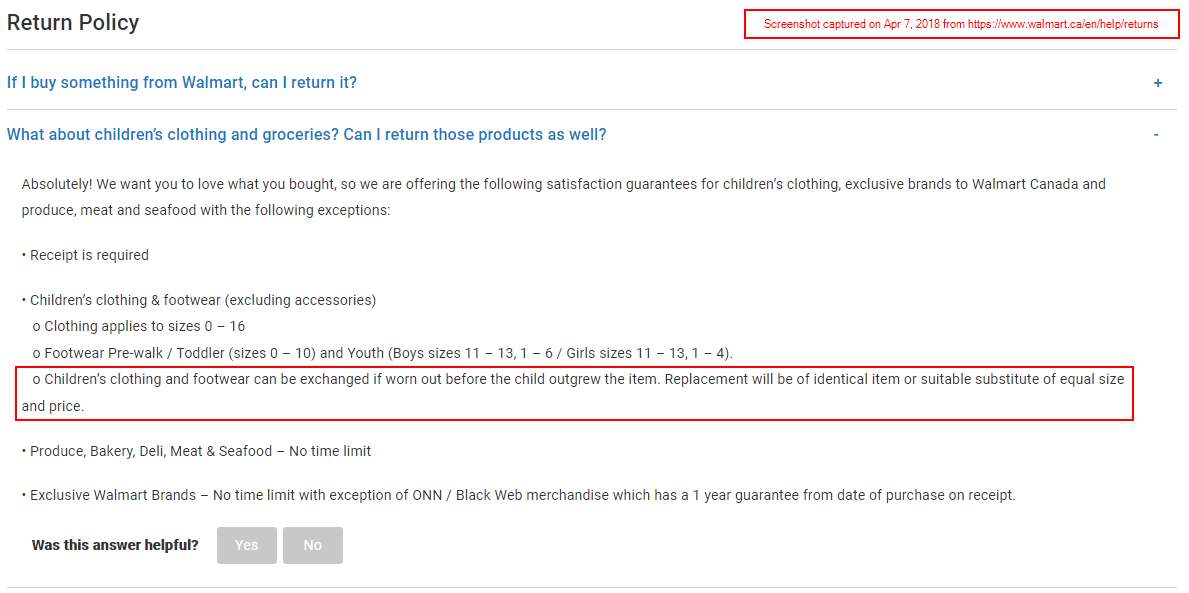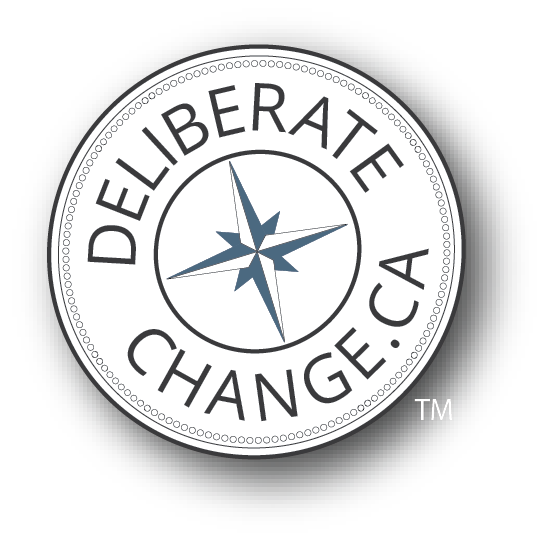 Did you know that you can successfully bargain with many different retailers, including those big box chains?
Did you know that you can successfully bargain with many different retailers, including those big box chains?
But before I get going on how and when to pull it off, I would like to make a case for why you should not bargain with a retailer. I remember discussing these ideas with others at a London On FIRE meetup a while ago. One person, who happened to be a small business owner herself, took (polite) issue with the idea of bargaining with retailers. Her point was that she sells her goods at a fair and reasonable price for customers and herself, and that it really bothers her when customers try to get greedy and negotiate. Therefore, she in turn does not attempt to bargain at other businesses. She expects that prices are set fairly.
That is actually a very good point, and worth considering in the context of standard retailers. If you really want to support the “little guy” or the local producer, etc., do you really want to drive down their prices as low as possible? Do you want them to succeed or struggle? Yes, we all want to pay the least amount that we can get away with, but you also have to consider that the other person is trying to make a living. (I’m not talking about big-ticket items like cars, where there is clearly margin and negotiation room built into the price.)
And this actually comes right in and supports the key point I’d like to make today. If you want to negotiate on anything, and in particular with a normal or big box retailer, then you are likely to have the most success if you can offer them a way to solve a problem. Go for the cliché but very true win-win.
But there are also other ways to be successful, too. I’ll walk through some of them below, using my own personal examples. I am by no means a master negotiator; I’m just trying to illustrate what is easily achievable if you’re not afraid to ask.
Coles Notes Version: Be polite and have a good reason for the retailer to agree to what you’re what you’re asking. Read on for some of those reasons and real-life examples!
Be polite and have a good reason for the retailer to agree to what you’re what you’re asking.
Reason #1: Solve a Problem for Them
 As I mentioned above, this is probably the best way to secure a win-win in any negotiation.
As I mentioned above, this is probably the best way to secure a win-win in any negotiation.
Old Stock
A common problem that retailers have is getting rid of excess stock at the end of the season. My favourite day of the year used to be Nov 1, when all of the leftover Halloween candy would go on sale. Over the years, though, the retailers got better at predicting customer purchases and had less overstock to dump. That and I started buying less candy because I like my teeth and would prefer to keep them for a few more years….
However, sometimes you get lucky and find old stock that’s clearly just taking up room on the shelf or in the backroom. Our family once rented a cottage for a week along Lake Huron. We didn’t realize how rocky the beach would be until we checked in. We decided to get some beach shoes to protect our feet while enjoying the water.
So off we go to the local Canadian Tire. Alas, they have only a handful of beach shoes, and none in our sizes. There are no other similar places to buy this stuff around. (I’m still puzzled why you cannot by in-season articles of clothing after the mid-point of the season, but that’s probably connected with my candy lament just above…)
When we ask if they have any shoes our sizes anywhere else in the store or some distant store, we learned that they do have our sizes in the back. They’ve already been set aside for next season.
So we politely ask for a discount so that they don’t have to store them all winter. And voila, an instant 20% off.
Damaged Goods
Another problem to solve is damaged goods. Sometimes retailers sell them normally, but many customers get upset if there’s damage to their brand-new stuff.
At Toys ‘R Us a few years ago, we bought my son a bike. It was already on sale because it was October-ish, but it had noticeable discolouring on some of the plastic parts. We asked for a discount and received another 10% or 15% off. This was probably connected to end-of-season clear-out motivation, but this approach has worked for us with other in-season items, too.

Kids don’t care if their bike is discoloured – they just want to ride! Photo credit: Andrea Urbaniak
Reason #2: They are Reneging on a Promise
In a way, this is the opposite to solving a retailer’s problem. You are politely threatening them to hold up their end of the bargain, which they may be trying to get out of either intentionally or accidentally.
Any time you purchase a service or good, you enter into an agreement with the vendor. You give them money and you receive something in return. That obviously includes the specific item, but also warranties, rights to accurate product labeling, etc. Negotiating in this case is simply enforcing their end of that agreement.
Policy Run-Around
In the past, both Walmart and Sears had generous and clearly advertised free exchanges on kids’ clothing, including footwear, valid until the kid outgrew the item. (And until we stopped shopping at Walmart and Sears…)
If you have kids, and in particular little boys, you will understand that this is most certainly not a risk-free endeavour for the retailer! Maybe it’s just our boys, but man do they ever wear out their shoes and pant knees quickly. (I guess the apple does not fall far from the tree…)
In the Walmart case, we bought rubber boots online. The website clearly stated that their exchange policy included footwear. It also clearly stated that all returns and exchanges could be conducted in store at the customer service desk. However, the big sign at customer service clearly stated that the exchange program excluded footwear. When the boots developed holes prematurely, they refused to honour the terms under which we bought the boots.
We ended up having to go back to the free wifi in the Walmart McDonald’s at the far end of the store, load up the online terms, go all the way back to customer service. They weren’t very happy, but kudos to them: they honoured the free exchange “this one last time.”
In the Sears case, they simply changed their policy as they experienced deeper and deeper financial troubles after we bought some kid’s shoes. But again, they honoured the terms under which we bought the shoes. As with Walmart, we had to engage a manager. Also as with Walmart, we were very polite but firm, but we were simply requesting that they honour their own terms of our purchase agreement.
I should say that in both cases, the dead footwear was far less than a year old, so it’s not like we were trying to game the system. We legitimately bought these items largely due to the generous exchange program. And in both cases, we had to stand firm, otherwise we would have been out what we had rightfully agreed to purchase in the first place.

As of April 7, 2018, Walmart still has the exchange option for children’s footwear purchased online. https://www.walmart.ca/en/help/returns
Scanning Code of Practice
There’s a whole other less controversial but perhaps slightly more on-the-spot embarrassing: the “scanner price accuracy code”, sometimes referred to as the “scanning code of practice”. It basically states that if an item scans in wrong, you get $10 off or the product for free, whichever is less. But you need to ask. It’s also voluntary, so some stores don’t follow it. I know that both Loblaws and Home Depot do, so keep an eye on the checkout prices.
One time at Loblaws, my ice cream scanned in too high. I mentioned it. They checked the price and adjusted it accordingly.
Did you catch that?
They adjusted the price. I had to gently ask about the scanning code of practice. “Oh yeah, sorry.” And then they gave me my free ice cream. (Have I just switched from cheap candy to free ice cream…?)
The point in all of this is not to go scouting around for all sorts of free stuff that shouldn’t be free. You should not be trying to screw anybody over. Rather, the point is to be on the lookout for things that you are legitimately entitled to, and then politely but firmly enforce those entitlements.
Reason #3: Corporate Generosity
Yes, sometimes big corporations do in fact care. On the other hand, a cynical observer could also suggest that they’re really just doing that to create a positive brand experience, which in turn drives more sales… But let’s be more positive than that for right now.
Just Because
Sometimes if you ask nicely, the retailer may cut you a break just because. Years ago, Canadian Tire used to be very flexible honouring “last” week’s flyer prices “this” week if you asked nicely. I don’t think they do that as much any more, but nor have I really tried.
More recently, I took one of our church-sponsored refugees with me to Canadian Tire. Someone had just donated a used bike for his 3-yr-old daughter, and we needed a new helmet and pedals. Because of their financial and family situation (you know, that whole “fleeing for your life” thing), I asked the staff if they could offer a discount, which they did. It wasn’t large (maybe 10% or 15% ish), but it made a substantial difference to helping this family out.
So don’t be afraid to ask for a discount on someone else’s behalf.
Customer Loyalty
Another reason for corporate generosity is customer loyalty. We always buy our eyeglasses from the same place, and have been doing so for years. We know the two opticians by name, and vice versa. Because of the relationship and continual business, they usually offer us their best sale prices regardless of whether the sale is active. Or, if a sale is coming up, they’ll let us know and we’ll schedule the purchase to hit the sale. So we have a win-win.
By them being nice and offering us a sweet discount, they have assured themselves of long-term customers. But it didn’t start that way: we had to develop that relationship and build those opportunities over time, initially starting with a polite request due to our volume of purchases.

Photo credit: Eric Hsiung
Reason #4: You Feel Like Being a Jerk
Let’s face it: sometimes people can be jerks. I can be a jerk sometimes, too, although I much prefer to not be. Hopefully you’ve clearly picked up that I prefer to do business with a smile and go for the shared wins. But not everybody is like that.
Sometimes you just feel like you deserve a discount. Like the infamous Kijiji low-ball offers that invariably come with every listing. And perhaps this is where my London On FIRE friend is coming from, with her distaste for bargain hunters. What goes around, comes around, and you want to be known to be fair, honest, and operating with integrity. You don’t want to be That Guy.
Like that guy I saw beside me at Costco’s customer service desk a few years ago. Now, Costco has one of the best return policies on the planet. But this guy was a real piece of work. He had purchased an item for around $100 or $200 in Alberta where they have only 5% sales tax (GST, the federal tax) and was returning it right beside me here in Ontario, where we have a 13% sales tax (HST, a combined federal and provincial tax).
The till computer doesn’t know that he purchased it originally in Alberta, so it calculates his return including 13% tax refund. But his paper receipt clearly shows that he only paid 5% tax. The lady at the counter was doing the reasonable thing by offering him back exactly what he had paid. But he was complaining vehemently that the computer said otherwise, and he was entitled to what the computer said.
Now, you might be thinking “How is this any different than an item that scans in wrong in the first place?” I don’t buy that, because this was a return with a clearly labelled receipt, not an original purchase that was mis-coded in the product pricing database. After what was literally 45 minutes of arguing, he finally gave up on attempting to return the item and just left the store.
I never said this had to be a good reason. Bottom line: Don’t be That Guy.
 Your Turn Now!
Your Turn Now!
Have you ever negotiated with a retailer? Why or why not? What approach(es) do you follow? Share what works and what doesn’t, and why it’s appropriate!

 Your Turn Now!
Your Turn Now!







Your Turn Now! What's On Your Mind?